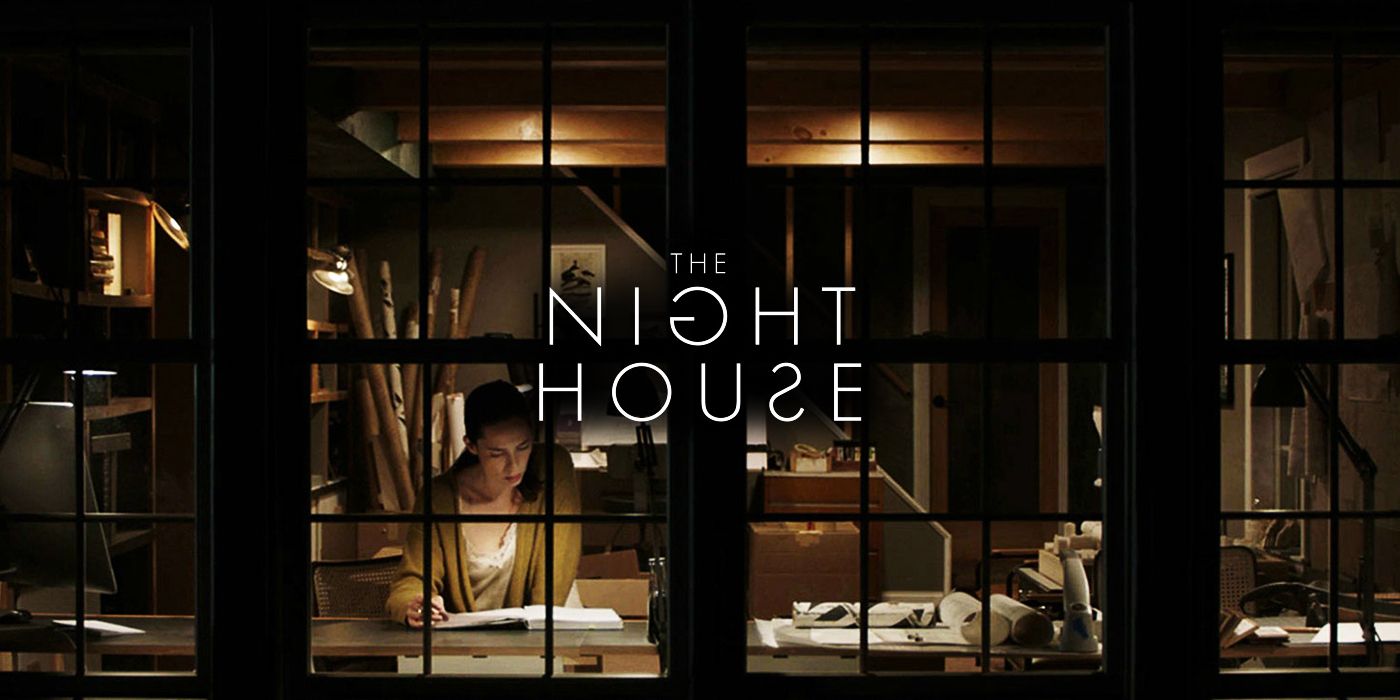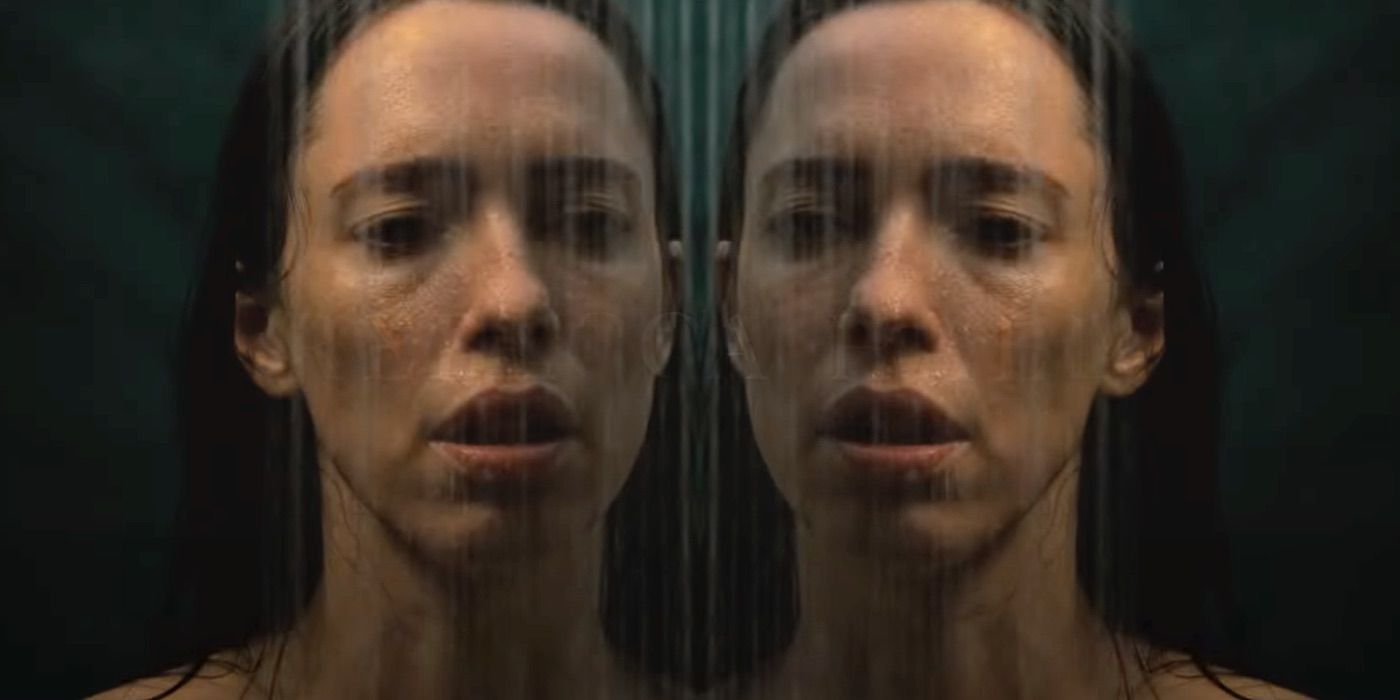[Editor’s Note: This article contains spoilers about The Night House.]
Even if you’ve seen the trailer for The Night House, it’s easy to mistake what the film is about. On the surface, it may even look like a doppelgänger movie, but it’s not that. Moreover, the whole film is an atmospheric mystery, where the audience is, like protagonist Beth (Rebecca Hall), trying to figure out why her husband, Owen (Evan Jonigkeit) committed suicide and why she keeps having disturbing visions in the house he built for them.
As the story continues, we learn that when Beth was young, she was in a car accident that left her legally dead for four minutes, and that when she came back, all she experienced from her death was nothingness. She only told this observation to Owen, who, when he died, left a note and confirmed that there was only nothing, which isn’t exactly the most heartwarming or illuminating farewell, although he also notes that Beth “is safe now.”
At the climax of the film, we learn exactly how this dark world has been operating. Owen built a mirror image of the house, a “caerdroia”, to trap the evil spirit that had been pursuing Beth since her death. In The Night House, “nothingness” is manifest as something. It’s a dark force that bent Owen to its will, and he tried to fight back by using dark arts to keep it at bay, so he built the “night house” on the opposite side of the lake, and when that ceased to work, he started killing women who looked like Beth in the hopes that the nothingness could be fooled, which it admits it was for a time. But now that Owen is gone, the nothingness has finally comes for Beth and she’s only saved at the last minute from the shouts of friend Claire (Sarah Goldberg), who brings Beth back to the land of the living and away from the verge of suicide.
It’s important not to get too bogged down in the “how” of The Night House. Yes, there are rules here the film has attempted to create, but it’s not really a supernatural horror. Rather, The Night House is psychological horror. The nothingness that pursues Beth could easily stand in for depression and trauma, and that’s why that final shot is so important. You can see the silhouette of the “nothingness” on the water, and it’s a reminder that this darkness will never be completely gone. It’s something that Beth will have to be conscious of and fight off for the rest of her life, which is very real for people that wrestle with depression and trauma. We like to think that one can be “cured” of these things, but in reality it’s an ongoing battle.
So how does Owen’s story factor into that? Well, there is a supernatural note about how the nothingness transferred over to him, but again, that works here on a metaphorical level as the story of The Night House is about how everyone fights their own private battles, and what’s so painful to Beth is that her husband was suffering (and it turns out, suffering because he believed he had to protect her) and she missed it. That kind of wound isn’t really about the supernatural, but the psychological, and that’s why The Night House is so powerful. It’s not really about some supernatural force from beyond, but what that force represents and how it appears in our lives. The rules of the nothingness and caerdroia are secondary to the emotional stakes and subtext the film provides.


